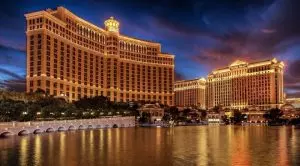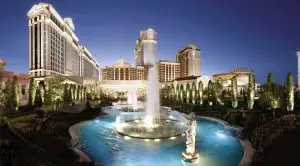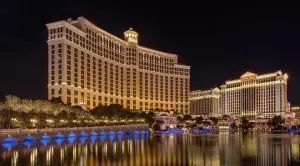 The restructuring plans of Caesars Entertainment and its related companies have been given the green light by the gaming regulatory authorities of the states of Louisiana and Missouri. Now, the approval of the state’s gambling regulators is to finally put an end to one of the largest corporate bankruptcies in the gambling history.
The restructuring plans of Caesars Entertainment and its related companies have been given the green light by the gaming regulatory authorities of the states of Louisiana and Missouri. Now, the approval of the state’s gambling regulators is to finally put an end to one of the largest corporate bankruptcies in the gambling history.
Currently, there are casino venues of the Caesars brand in both the above-mentioned states, with the properties now need to be checked before the company is given the chance to proceed with a full exit from its Chapter 11 bankruptcy. As soon as it happens, it is to be reinstated as a reorganised corporate casino operator in the market.
After the Illinois bankruptcy court gave its approval to the restructuring plan of the industry behemoth in January, Caesars Entertainment won the approval of gambling regulators in Nevada at the beginning of July. Now, the company expects to finally exit Chapter 11 bankruptcy and plans to start operating with a new corporate structure at the beginning of October.
Caesars’ New Corporate Structure
 As part of the reorganisation it has gone through, the main operating unit of the company, which was also the one that suffered most difficulties, Caesars Entertainment Operating Co., is to be separated from the group’s other businesses, forming a real-estate investment trust. On the other hand, the parent company of the group – Caesars Entertainment – is planned to join forces with one of its subsidiaries, Caesars Acquisition Co., in an entity focused primarily on the casino and hotel business. The merger will still be subjected to customary closing conditions, but as mentioned above, the operator has shared its expectations to finalise the merger at the beginning of October.
As part of the reorganisation it has gone through, the main operating unit of the company, which was also the one that suffered most difficulties, Caesars Entertainment Operating Co., is to be separated from the group’s other businesses, forming a real-estate investment trust. On the other hand, the parent company of the group – Caesars Entertainment – is planned to join forces with one of its subsidiaries, Caesars Acquisition Co., in an entity focused primarily on the casino and hotel business. The merger will still be subjected to customary closing conditions, but as mentioned above, the operator has shared its expectations to finalise the merger at the beginning of October.
At the time when the group filed its Chapter 11 bankruptcy protection application, the company’s executives revealed that a restructuring of the group would provide them with the opportunity to establish a sustainable capital structure for the company, which would eventually boost its stakeholders’ value.
The process of restructuring and reorganisation is to reduce the company’s mind-blowing debt of $18 billion by $10 billion. Earlier in 2017, the company shared that now it was a stronger entity with a clearer perspective for grow and investment.
As mentioned above, the regulatory authorities in the states of Louisiana and Missouri have granted the company with the necessary approvals and operating licenses in order for the entertainment and gaming giant to proceed with its reorganisation.
Now, Caesars’ business seems to be ready for new life, with its reported operating profit increasing by 50% in three years. It would be easier for a reorganised company with a more define structure to emerge from bankruptcy, not to mention that The Financial Times has recently shared expectation for the the company to be valued to a total of $25 billion, which is not so much below its sale price back in 2008.
How Did Caesars Get to Bankruptcy?
 The enormous $18-billion debt of Caesars Entertainment was accumulated back in 2008, when the company was still known under the name Harrah’s Entertainment. At that time, the operator was purchased in a massive buy-out by TPG and Apollo, in a massive deal estimated to a total of $31 billion.
The enormous $18-billion debt of Caesars Entertainment was accumulated back in 2008, when the company was still known under the name Harrah’s Entertainment. At that time, the operator was purchased in a massive buy-out by TPG and Apollo, in a massive deal estimated to a total of $31 billion.
Completing such a deal in the midst of the world’s financial crisis, probably gave the new owners of the business confidence that the casino industry was not affected by the recession to the extent other businesses were influenced by the crisis. Unfortunately for the company, people and corporations from all over the world seriously reduced both travelling and discretionary expenditures in the period, which was a massive blow to the company.
At a time when its revenue was considerably lower due to the ongoing recession, the operator was also burdened by interest payments of approximately $2 billion on an annual basis. All of this combines made Caesars Entertainment seek bankruptcy protection at the beginning of 2015. The company’s bankruptcy protection was weighed down by debt estimated to $24 billion.
The bankruptcy of Caesars Entertainment has been described as one of the ugliest corporate disputes nowadays. The debtholders of the brand – a group led by Appaloosa Management, Oaktree Capital and Elliott Management – accused the private equity firms of the brand in methodically drawing off the brand’s most important properties to other entities owned by the group in order to steal for themselves whatever value remained.
The allegations of impropriety escalated in court, so that David Bonderman, co-founder of TPG, and Marc Rowan, co-founder of Apollo, were issued a court order in 2016 to present personal financial documents to prove their ability to pay out potential personal judgements for billions of dollars against them.
The court-appointed examiner of the case found both TPG and Apollo were guilty of asset stripping. The ruling gave right to the junior creditors to file billion-dollar claims against the two private equity firms. In addition, the two companies were forced to give up their control on Caesars as a guanrantee for the existing lawsuits against them to be dropped.
Fortunately for Ceasars Entertainment, things are going back on track in Las Vegas. The city has managed to keep its positions as the most popular gambling destination on a global scale, with hundreds of thousands visitors who come here every year.
- Author


